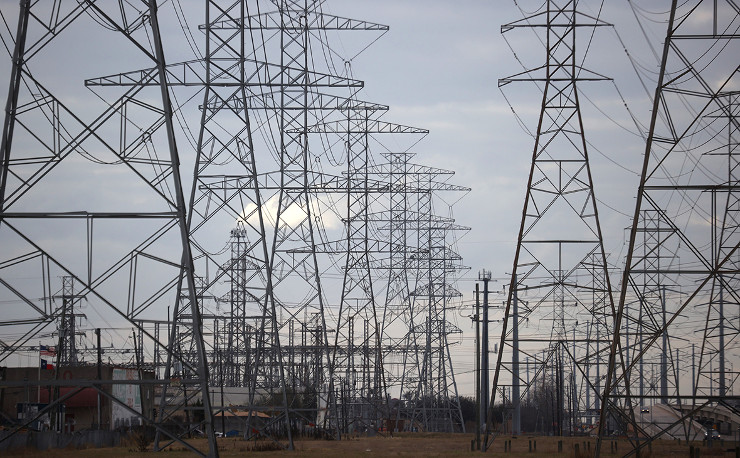When Russia began its special military operation in Ukraine and the West responded with sanctions and threats of completely cutting off energy supplies from Russia, little did European states realise that their threat will come back to haunt them within months. The constantly rising cost of living in Europe (and the US) and the spectre of gas shortage for the coming winter have taken the steam out of their bid to “isolate” and “defeat” Russia. The spectre of economic instability is now translating into political consequences, evident from the untimely exit of British and Italian leaders. As even a New York Times report said, “Italy’s crisis” has “exposed the fragility of a Europe contending with rising energy prices.” But what the western mainstream media has consistently failed to report – and even mention – is that this “fragility” is very largely self-inflicted, which is indeed a direct result of Europe’s failure to assert its strategic autonomy vis-à-vis the US, take its own decisions as well as its habit of every now and then caving in to the US demands to build a global coalition against Russia (and China in the Pacific).
As a result, Europe now faces an acute ‘gas crisis.’ Although European leaders did not initially decide to cut off their gas supplies from Europe (they were more eager to cut off oil and coal supplies), there were naïve enough to miss that Russia could take that decision very well. While Europeans believed that cutting off energy supplies from Russia will hurt Moscow, that decision to cut off pushed energy (oil and gas) prices high enough to allow Russia to earn more revenue than it did in the previous year while causing Europe itself to teeter under a crisis of ‘rising cost of living.’ Can Moscow be held responsible for a strictly European decision to “cut off” Russia? That would be a very lazy analysis if one were to attempt it.
Many in Europe claim that this decision was prompted by Russia’s decision to “invade” Ukraine. This was an “unprovoked invasion”, the claim often goes. But whose decision it was to expand NATO to include Ukraine and pose a direct territorial threat to Russia, not respect Russia’s legitimate security interests and refuse to address those interests in a reasonable fashion? Certainly not Moscow’s. The West – the US and the EU – claimed that Russia could not dictate the membership of NATO. It is their sole prerogative, they say. But Russia, like any other country in the world, can take steps to protect its interests. This is how Russia’s military operation in Ukraine began and this is why Russia responded to the European threat to cut off energy supplies from Russia with the demand to be paid in Roubles.
Facing the spectre of their own decision to cut Russia off haunting their own politics, European leaders decided to pay in Roubles. Western leaders claimed that Russia was weaponizing gas. If, in a war, the West can weaponise the economy and finance (SWIFT cut off) to impose sanctions, it would be naïve to expect Moscow not to take steps to shield itself. What Europeans did not like is the fact that Russian policies taught them a lesson in the gas trade. Paying in Roubles directly offset Western sanctions, allowing Roubles to gain vis-à-vis USD, and further allowing Russian currency to reach a 7-year high.
In other words, a chain of events triggered by the US policy to expand NATO to encircle Russia – and keep Europe under control – ended up contributing to the Russian economy. Nothing perhaps could be more ironical in global geopolitics than this.
Some of the Europeans are now coming to terms with this self-inflicted harm. Canada, after receiving a “request” from Germany and getting a sanctions waiver from Washington, has decided to send back the Nord Stream 1 turbine to Gazprom to help re-start the supply of gas from Russia. But fixing technical malfunctions is ultimately going to take time, which is why resumption of gas supply via NM1 is not going to happen quickly. More trouble is ahead for Europe.
With many European economies – especially, Germany – relying on energy supplies from Russia, the prospect of an economic meltdown across Europe is high, the IMF has predicted. According to other estimates, Germany’s economy would lose US$240 billion if gas supplies from Russia are cut off completely. The UK spy chief would be wise enough to re-calculate who is actually running out of steam due to the war in Ukraine. While such rhetoric helps the Europeans reassure themselves of an ultimate victory, ground realities tell a completely different story.
As Germany’s finance minister, teetering under crisis, recently remarked, while Germany was moving as quickly as possible to slash its supplies from Russia, the real question was “at what point do we do more harm to Putin than to ourselves?” In other words, cutting energy supplies from Russia is much easier said than done.
According to BDEW, an association of German energy and utility suppliers, while cutting off energy – especially, gas supply – from Russia is theoretically possible, there is no gainsaying that this step means a complete, bottom-up transformation of the entire German economy. Is it doable? Extreme caution is, therefore, needed, the firm has advised. But the question is: will Europeans exercise caution? Will Europeans sit together and think that they could have – and still could – minimised the harm by transforming their geopolitics and foreign policy in ways to reduce dependence on Washington’s dictates and develop a more sustainable relationship with Russia?
Imagine a scenario in which European members of NATO refused to support the US bid to expand NATO. A war in Europe could have been avoided and an economic meltdown – and the increasing prospects of mass protests – could have been firmly averted.
Salman Rafi Sheikh, research-analyst of International Relations and Pakistan’s foreign and domestic affairs, exclusively for the online magazine “New Eastern Outlook”.

